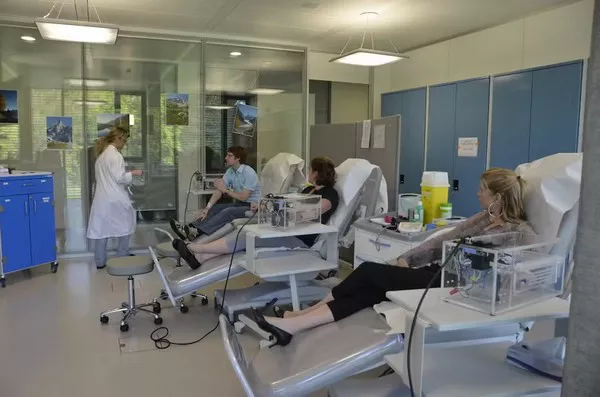In a groundbreaking collaboration, China Medical University Hospital (CMUH) in Taiwan announced its partnership with Google Cloud in mid-December 2023. Leveraging Google Cloud’s state-of-the-art generative AI technology, including MedLM, a large language model built on Med-PaLM 2, CMUH has successfully developed an all-encompassing “AI-assisted Physician” system. This innovative system aims to revolutionize healthcare by supporting professionals in disease diagnosis, treatment planning, patient education, and medical research.
The focal point of the collaboration is the introduction of assistive tools tailored for precision cancer treatment. These tools, such as “Customized Cancer Treatment Guidelines” and “Cancer Therapy Q&As,” are designed to streamline information retrieval, reducing the time spent by medical professionals on research and facilitating accurate data capture. This initiative is anticipated to expedite the development of personalized cancer treatment plans and enhance the provision of treatment-related information to patients.
CMUH, being one of the pioneering university hospitals in Asia to test MedLM, is committed to driving AI innovation in smart healthcare, aiming to shape the future of healthcare in Taiwan. Prof. Der-Yang Cho, Superintendent of CMUH, highlighted MedLM’s advanced capabilities in precise and rapid data analysis for drug guidelines, disease gene sequencing, and medical records. The collaboration with Google Cloud positions smart hospitals in Taiwan at the forefront, providing precision- and safety-oriented support to healthcare professionals and patients.
Already recognized as the world’s third smart hospital by the US. Healthcare Information and Management Systems Society (HIMSS) in 2022, and named one of the World’s Best Hospitals for 2023 and one of the World’s Best Smart Hospitals for 2024 by Newsweek, CMUH is deeply committed to advancing the diversification and precision of smart healthcare services.
Kathy Lee, Managing Director of Google Cloud, North Asia, emphasized the potential of AI in addressing life sciences problems, stating that generative AI solutions from Google Cloud can enhance efficiency and improve patient outcomes. The collaboration with CMUH signifies a crucial step in building the future of healthcare in Taiwan during this era of gen AI.
Aashima Gupta, Global Director of Healthcare Strategy and Solutions at Google Cloud, underlined the role of gen AI in reducing the workload for healthcare professionals, allowing them to focus on tasks requiring human judgment and expertise. Ensuring the safety and effectiveness of gen AI is fundamental to achieving these benefits.
Greg Corrado, a Distinguished Scientist and Senior Research Director at Google Research, highlighted MedLM’s significance in the healthcare industry and its potential to significantly improve the healthcare experience for professionals and patients. Collaborating with institutions like CMUH is seen as a critical step towards developing safe and effective AI technologies.
Prof. Oscar K. Lee, Vice Superintendent of CMUH, emphasized the outstanding performance of Med-PaLM 2 among global generative AI large language models. With a score of 85% on MedQA-USMLE, comparable to professional physicians, MedLM stands out as a pioneer in medical AI models with exceptional performance.
The collaborative applications between CMUH and Google Cloud, including “Customized Cancer Treatment Guidelines” and “Cancer Therapy Q&As,” aim to expedite cancer treatment planning by integrating MedLM with the National Comprehensive Cancer Network (NCCN) guidelines. The applications not only diminish the time spent searching for information but also enhance overall clinical efficacy, improve patient understanding and engagement, and contribute to fostering warmer doctor-patient interactions.
Additionally, CMUH is utilizing Google’s unique AI accelerators, Tensor Processing Unit (TPU), to assist in calculations related to protein folding and the development of new drugs. Preliminary tests have shown a significant reduction in computation time for related programs by over tenfold.
With its robust research and development capabilities, CMUH’s Artificial Intelligence Center has introduced over 20 distinct AI medical services in recent years, assisting doctors in making fast and accurate medical decisions. This collaboration signifies a significant stride towards advancing the capabilities of AI in healthcare and shaping a healthier future.


